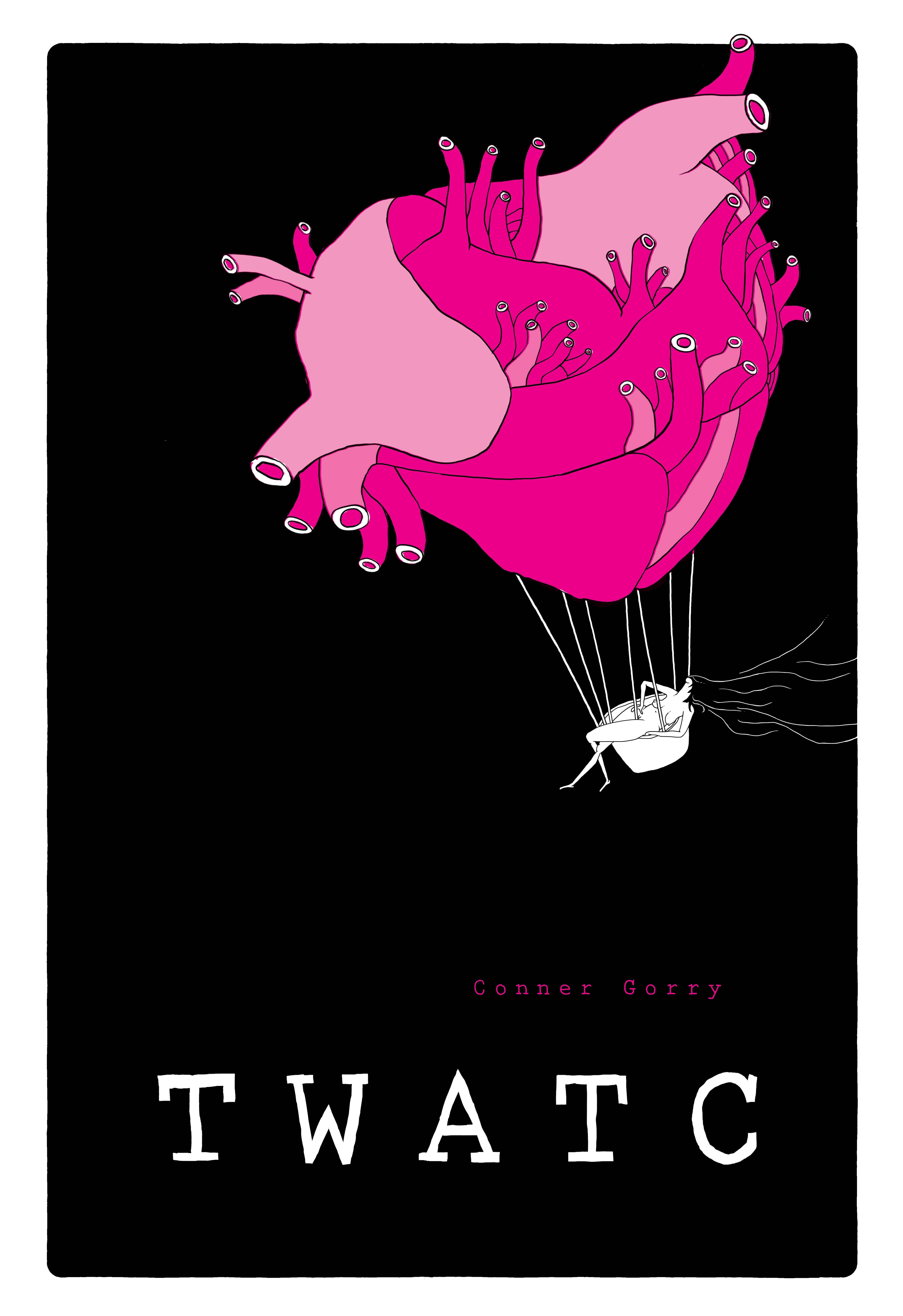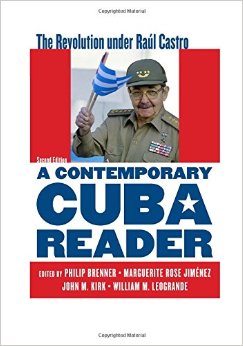One of my oldest, closest friends is having a tough go of it lately. Man problems, work-life balance problems, health problems. In a nutshell, she’s living life, which, as Hobbes observed, tends to be nasty, brutish, and short.
All I want to do right now is pick up the phone and call her in LA to commiserate, consult, and kvetch. Unfortunately, that’s an impossibility since I’ve insufficient saldo on my cell and besides, rates are outrageous (over a dollar a minute). It’s also impossible to call her from my home phone, which has no international service. At least I have a home phone – many people here can’t say that. But igual, rates are outrageous. What about email? you may be wondering. I can pause the pirated US Open match I’m watching, plug in the modem and phone line, wait and HOPE it connects (on a weekday night like tonight, even if I succeed in logging on to the remote computer, the connection speed tops out at 28kbps – that’s kilo, not megabytes, people). If it does connect, yay! Then I have to click through four screens to finally be able to kvetch and commiserate via email. Meanwhile, I’ll be praying no one calls, thereby kicking me offline. But you know what? That just doesn’t cut it when you want to talk to someone you love.
If this state of communicative affairs sounds terrible as you stream the latest Netflix series or rock out to Pandora, while taking calls and reading this blog via your broadband and bandwidth, it is. But things are a lot better than when I first moved to Havana in 2002. Back then I lived in a microbrigada in what’s known as a ‘silent zone’ – meaning a neighborhood with no landlines. For the next six years making a phone call (nationally only, of course) was a serious chore. I had to make sure I had the right coins (because not all coins are accepted; that would be too easy and efficient), go down five flights of stairs and walk several blocks to a pay phone. And if there was a neighbor gossiping with her girlfriend from Gunatánamo? Ay mamá! The wait for that precious phone could be half an hour or more. I remember a fight broke out once – nothing physical (it takes a lot, or a lot of rum, for a Cuban to raise a hand or throw a punch), but rather a loud, bellicose shaming: ‘chiquita! You aren’t sitting at home in your living room. This is a p-u-b-l-i-c phone. Wrap it up already!’ This encouraged others to chime in. ‘There’s a line here, you know!’; ‘we have to make calls too. Give us a chance muchacha!’ people in line grumbled.
Having a cell phone back then was unthinkable. It was extraordinarily expensive of course and it was illegal for Cubans to have them. That seems absurd now, given how far connectivity has come in the intervening years. The only people I knew with cell phones were international correspondents (who also had Internet and satellite TV; the latter is still illegal for Cubans). Fortunately, the days of illegal cell phones and silent zones are long behind us. Now we have Wifi in parks, people get emails on their smart phones, and don’t be surprised if the Cubans kids at the table next to you are glued to their tablets or iPads. In short, communication to and from Cuba is better than ever – not as fast or accessible or affordable as any of us would like, but still, we’re leaping into the 21st century. Here’s how we keep in touch in Cuba nowadays:
Cell Phones: Cubacel is the one and only cell service provider on the island. Once you sign a contract for a phone (cost: $30 CUC) and buy an actual phone if you don’t already have one, you have to fuel it in increments of $5 and $10 CUC to make calls. National calls cost between 10 and 35 cents a minute, depending on the time of day. International calls are over $1 CUC/minute no matter where in the world you’re calling. Text messages are more affordable (nine cents per 160 characters within Cuba, 60 cents to the rest of the world) but can be prickly in practice.
Just getting a cell contract is a neat feat since the lines at Cubacel offices can be obnoxiously long and it’s not uncommon to find they are out of SIM chips, in which case you’re shit out of luck. If your phone is from outside Cuba, it will likely be locked or won’t accept the size chip used here, which also renders you shit out of luck. This, however, is ‘resolvable’ since private entrepreneurs all over the island have opened businesses specifically to unlock phones and cut SIM chips down to the proper size (costing an additional $100 CUC or so all in).
Text messages are a fast, cheap way to communicate – I’m sure many of you reading this send scores of messages a day without even thinking about it – but texting can fail mightily here. The most frustrating aspect for me personally and millions of Cubans is that it’s impossible to send messages to or from the USA using a Cuban cell phone. You read that right. You can text a congris recipe to your friend in London, Madrid, Buenos Aires or Montreal, but can’t tell your mom in Kendall that you love her or confirm an upcoming meeting with a delegation from DC via text. There are services to allow texting between the two countries, but Im too tired to jumopop through even one more hoop! Internally, text messages also get delayed when volume is particularly heavy – on Valentine’s Day, say, or when the Stones are in town. How many times have I been rudely awoken by a 4am text that was actually sent the night before? Too many to count. And how many parties or family meals have passed without my presence due to delayed message receipt? Ditto. The moral of this story is two-fold: if the information you need to convey is time sensitive, spend the extra money on an actual call. And if you want a good night’s sleep, put your phone on airplane mode.
The same advice holds for US folks with Verizon, T-Mobile or Sprint, which now have roaming agreements with Cuba. Rates are usurious – you wouldn’t be the first to return from a Cuba trip to find you’d racked up $1000 in roaming charges. The only people these agreements benefit are business and government fat cats with even fatter expense accounts.
Now for the good news. A service appeared several years ago which allows you to recharge a Cuban cell phone via the internet. This means you don’t have to hunt around for someone selling the $5 or $10 CUC scratch off cards and you can do it any time of the day or night. Don’t have an internet connection and credit card? No matter – friends anywhere in the world can gas up your cell with the click of a few buttons. But it gets better: every six weeks or so, the companies providing this internet-based service have promotional offers which double or even triple the money charged to your phone. For those without friends or family abroad willing to plunk down money on your cell, there are private businesses all across the island which allow you to take advantage of these promotions for a $2 CUC surcharge. These services (Facebook is another), have literally transformed communication between Cuba and the world strengthening relationships and even reuniting families. My friend Douglas in Havana, for instance, reconnected with his long-lost brother, Clive, in Stockholm. They first made contact using Facebook and now talk via cell thanks to offers like those provided by ding which make calls affordable (admittedly, I’m often transferring money from my cell account to Douglas’ – and other friends – so they can talk. This is another new and wonderful option we have: using a simple code, you can transfer saldo from one cell to another here.) Clive has been to visit Douglas three times in the past 18 months and it’s heart warming to see their relationship blossom.
While there are a handful of companies offering this suite of services, my family and friends swear by ding (not for nothing but ding is headquartered in Dublin so receives bonus points for the Irish connection). Hearing about my mom’s latest canine escapade or wishing my niece a happy birthday, sharing details about our latest art show at Cuba Libro or regaling friends with Harley tales: I can personally attest to an improved quality of life thanks to ding’s generous recharge offers. And all you have to do is click Cuba in their drop down menu, enter the phone number and click ‘Top Up.’ This last has led to some panicked calls from Cuban friends: ‘Conner! My socio in Canada wants to put money on my phone before the offer expires, but they can’t find where to do it!’ I tell them to click the big green button that says ‘Top Up’. Even bilingual friends look confused at this point, unclear what ‘top up’ means – it’s less than intuitive this last step. The ‘top up’ service is sold in 500,000 retail locations around the world as well. Ding also has services for putting money on Cuban landlines and nauta accounts.
Nauta: This is even newer and more novel than cell phones. An email and internet service available directly from your smart phone (which one repeat visitor called ‘the new Bible in Cuba’), Nauta is very handy, especially if you work extensively with Cubans via email. Opening a nauta account may involve an interminable line, but it will be worth it once you pay your $2 CUC to open the account and receive a dedicated nauta email address. Then you can send and receive email and surf the internet for $1 CUC per megabyte – the money is deducted directly from your cell phone. Internet can also be accessed from hotels ($6 CUC/hr) and dedicated ETECSA internet offices (the most user-friendly is in Miramar Trade Center). Ding also offers Nauta top up services.
Wifi: Wireless access in public parks across the nation may just prove to be the revolution within the revolution. This technology was introduced a couple of years ago and allows people – again, those privileged enough to have smart phones – to connect to Wifi for as little as $2 CUC an hour using a one-use card. Re-sellers are rampant due to the high demand however, and do a booming business cranking the cost of the cards by 50 to 100%. Since my phone is more dumb than smart, I’ve never used the park Wifi but I know the connection can be wonky depending on traffic and well, communicating in a public space can present privacy issues. If you want real insight into contemporary Cuban culture, skip a night on the Malecón and plant yourself on a park bench during peak Wifi hours. A grandmother connects to the internet for the first time in her life and meets her baby grandson virtually; a mulatta lies to her husband that she doesn’t have anyone else, that he’s her one and only Papi; a third grader tells his mom about his day at school – whether you’re at 16 & 15 or Parque Coyula or any of the other parks around town with Wifi, such eavesdropping will be a revelatory experience.
For my part, thanks to my family and ding, I finally have money on my phone to be able to talk to my friend in LA. When the call connects, it goes directly to voice mail, costing me $1 CUC in saldo.











OK Ding is a good thing. But your friend: let her come to Cuba: There is a lot of nice cuban man for her, work life balance problems don’t exist and .. as you don’t work too much and dance a lot your health problems disappear.
My friend has already been to cuba and while I agree with you that dancing is good for health and well being and there are other wonderful quality of life aspects to Cuba, I disagree 100% with you about there being no life-work balance issues here (in the private sector for regular private sector reasons and in the state sector for salary/conditions/transport and other reasons). Add to this: blackouts (from 8am-5pm today in Cuba Libro’s neighborhood, preventing us from opening); food insecurity; fractured families; air and noise pollution; machismo; wonky internet; alcoholism; litter; abandoned pets; and I could go on, but if you’ve been here, you know what Im talking about!
I think this comment also points up something that has come up in friendly discussions around me lately: it is VERY different to come here on vacation (even if it’s 6 months a year) and to live here full time, all the time….
You are so right, but there is also a reason that you are in Cuba 🙂
Hi Conner –
I just booked tickets to Cuba for November today, and in researching found your blog (and am now obsessed/feel a little stalkerish). I would like to get in touch, but for some reason your contact page keeps giving me an error. Help?
Hola. Well that sucks that the contact page is bunk (also par for the internet challenged me/cuba course…sigh). You can drop me a line at cubalibrohavana(at)gmail(dot)com. have a great trip!
The struggle is real!
Another fun fact is how Etecsa staff makes note of and shares your Nauta password so a 3rd party can use YOUR balance. Better change the password as soon as you open the account and do so often enough.
The only affordable way to call abroad from Cuba is going to a WiFi park and connect via IMO: $1 cuc / hour vs $1/minute. Calls can be audio or audio/video. Connection is horrible and spotty but cheap.
A sad honorary mention goes to the “perdida” phone call, which is the “smoke signal” equivalent for letting a party abroad know they’re thinking of you, or in the best Tony Orlando & Dawn fashion: “Knock 3 times (perdida 3 times) if you want me (to call you)”…
Ah… Cuba. And, yes, DING rocks and their customer service is top notch
Haha!! Love the llamada perdida as smoke signal! Better than carrier pigeon?! And the Imo info (our version of FaceTime or Skype) is spot on. Thanks for reading and writing in
A great write up, Also please mention to anyone going there, or taking a smartphone to pre install the IMO app.This is the best and most common way to communicate with people abroad (including USA) as it is not possible to use Whatsapp or Skype for voice calls (for messaging it is OK).
Yes, IMO is the way to go for video chat (using Wifi, of course) here. thanks for reading and writing in!
Pingback: Communicating from Cuba | Teaching lions to fly
Thank you!
Just when I was wondering how to help a friend more Internet time, your blog came through!
Love Ding!!
CubaMessenger has been the best thing to come around for our family. No internet required in Cuba. $0.05 to send and $0.02 receive and it only charges the user outside Cuba. 60 second voice messages are just $0.07 so we send them back and forth and it’s much cheaper than a phone call and you get to save them so you can listen to your loved ones whenever you want!
Thanks for the tip Allison. Other folks have written me voting for cuballama where you sign up and can text between the USA and Cuba. Happy chatting!
Hi Allison, is it definitely the case that CubaMessenger only charges the account outside of Cuba? I heard otherwise. Thanks.
It appears that Cuban user still needs access to nauta e-mail on his/her phone. Technically it is internet connection required and the charge is 1 CUC per 1 MB. CubaMessenger is not very clear but it seems that in the absense of nauta, messages are exchanged by SMS.
What about the wifi signals amplifiers people are talking about lately?
there are boosters (which work when you are actually in the park or very close, where the wifi is located) which allows several people to connect using one card/account and then there are the internal “red” antennas which allow people to connect to an internal network from their homes – these are ALL the rage and have ubtold numbers of young people losing sleep, skipping meals and ditching school to connect. I know from personal experience – our oldest, most trusted team member at Cuba Libro is an avid user!
Conner:
Could you elaborate on these “red antennas”? Cost? Can anyone get one? Is it like “el paquete” (an underground thing??
Its an underground thing – there was recently an article on cubadebate.com. They are not technically legal. The nano 92 costs around $180.
I got interesting information from this site Thanks for sharing.
What about WhatsApp for texting? That’s hugely useful around the world. Is it blocked in Cuba?
WhatsApp totally works in Cuba (exept when it doesnt!)
Great – thanks. Sounds like texting won’t be much of an issue.
Your blog has been the most helpful thing I have read on the internet about communication with Cuba! Thank you! I recently just got back from Cuba and met some amazing people! I have a bunch of old smartphones sitting around and want to send them. Advice on this? I’ve tried asking around and most replys have been that they will never reach there destination.
The post between here and there works very well but smartphones are hot commodities, so there’s a certain risk sending them through the mail. Best is to look for someone traveling to cuba who is willing to put them in their luggage. best if they come “unblocked”. you might post on the cuba branch of the http://www.lp.com thorn tree forum. people are pretty receptive to this kind of thing on there. Glad you enjoyed cuba and found this info useful (I just had a hater on the cuba libro fb page call here is havana “useless” – nice to have her proven wrong!)
I found a friend who actually left for cuba today so I was able to give her the phones! I didn’t have time to get them unblocked though. Will my friend be able to find someone to do that for him in cuba? I managed to call him yesterday to tell him where to meet her, but my Spanish isn’t great and he speaks very little English. Hoping he gets his phone and we can contact via text. Will I need a specific app for us to text each other or just through our mobile carriers? sorry if any of this is repetitive
That’s great! he can get it unlocked here but it will cost minimum $50CUC (depending on the make/model). for texting you can try WhatsApp or CubaLLama. Good luck!
Hi Conner – I will be traveling to Cuba later this month…Are the best ways to communicate with the US WiFi calling and WhatsApp texting?
IMO is the skype-type app that people use here in wifi parks. Have a great trip
Thank you!
I was in Cuba last last month. I know for a fact that AT&T and T-mobile have reception (and I assume Verizon also has). Text messages were 50 cents to send and free to receive from the US, so that was fine for quick check-ins. Calls were more expensive ($2 the minute, I think). For longer calls I agree, IMO is the key. If you find a hotel selling the wifi cards for $2, buy a bunch.
Hi. Thanks for the article. You mentioned they can share with others by using a code. Can you explain to me how that works. I already use ding to send my friend the deals and was wondering how he can share it with his family. Thanks.
Also, can he trade or sell credits to others in the same way? It would seem like It’s a great way to send him cash.
He has to put in #234* in his cell, it asks which number he wants to transfer “saldo”, the amount and then asks to confirm. You can only transfer cell funds once a day. Id be surprised if he wasn’t already doing this (and to make cash, as you mention in your other note). Cheers
Thank you. That sounds easy enough. If he is not already doing that, I will tell him how.
Pingback: A letter to my 15 year old self from my 21 year old self – Letters to Lia
Great article. I was really enjoying it until you used the term “mulatto” to describe a woman sitting on a park bench. You seem pretty worldly and should know enough that that is a term that is now considered derogatory. It seems quite out of place in this otherwise informative bit of writing.
Hi Claire. I don’t know from where you’re writing but here in Cuba, negro, mulato, javao, chino and many other terms to describe physical characteristics are not considered derogatory. since Ive lived here for 16 years (see my most recent post which touches on the topic of identity politics), I am especially cubanized in use of language typical to our context. Sorry if I offended!
Hi, I am new to this. I’m trying to contact a family member in Cuba. I have a quick question. When i top-up a cuban cell does that mean they can call me in the united states without my provider charging me an arm and a leg?
YES!!!! with “saldo” on their Cuban phone, they can call you in the states and it will not cost you a thing (except for the “top up” of course, but rates are so much cheaper this way – especially with the “bono” deals happening. I just topped up with http://www.ding.com (no! this is not a paid plug but this allows me to talk to my family and Im very grateful.) Things have changed so much since I moved here in 2002!! Cheers
Oh awesome!! Another question, What is “Saldo”?
literally it means “balance” but it is the word cubans use to refer to how much money is on their phone.